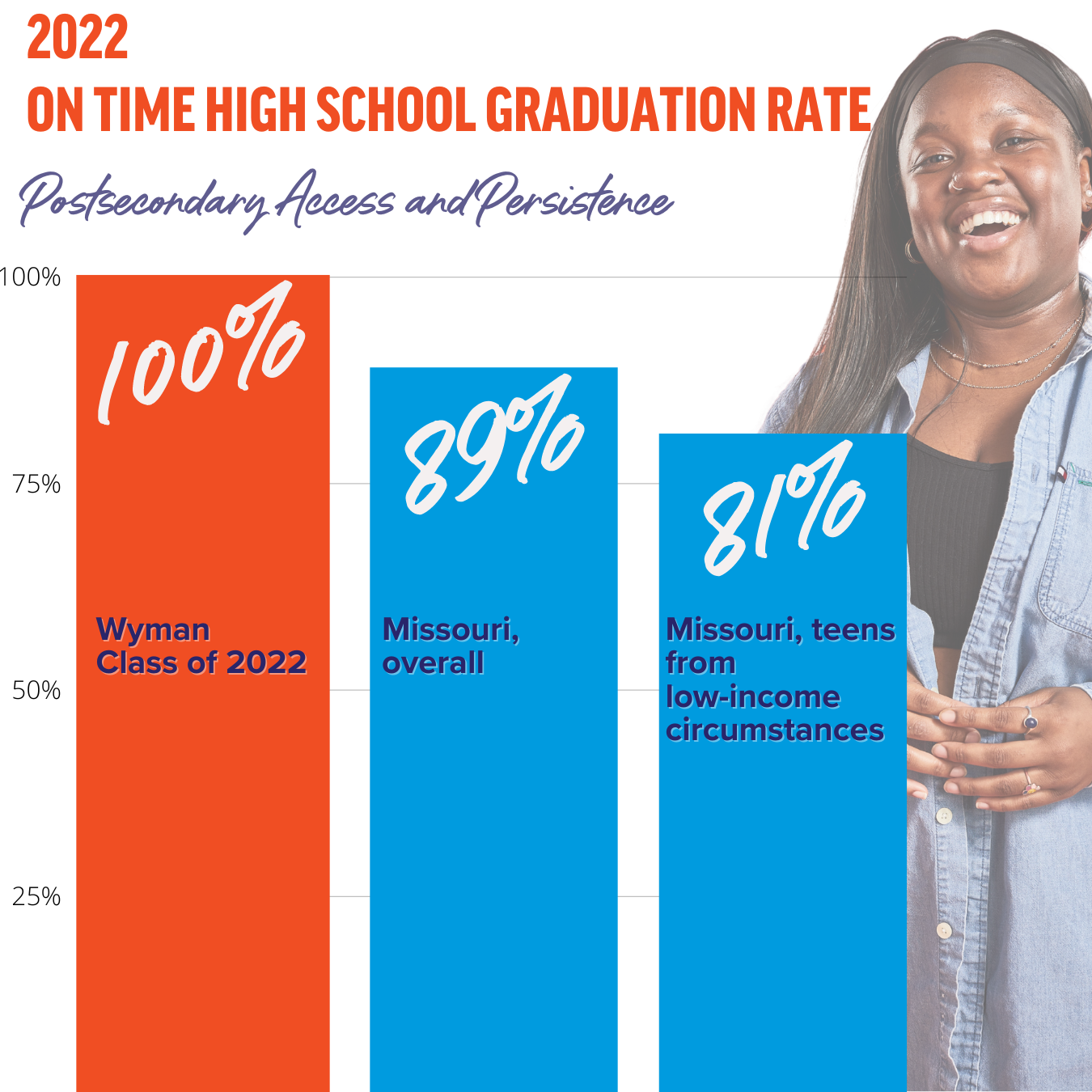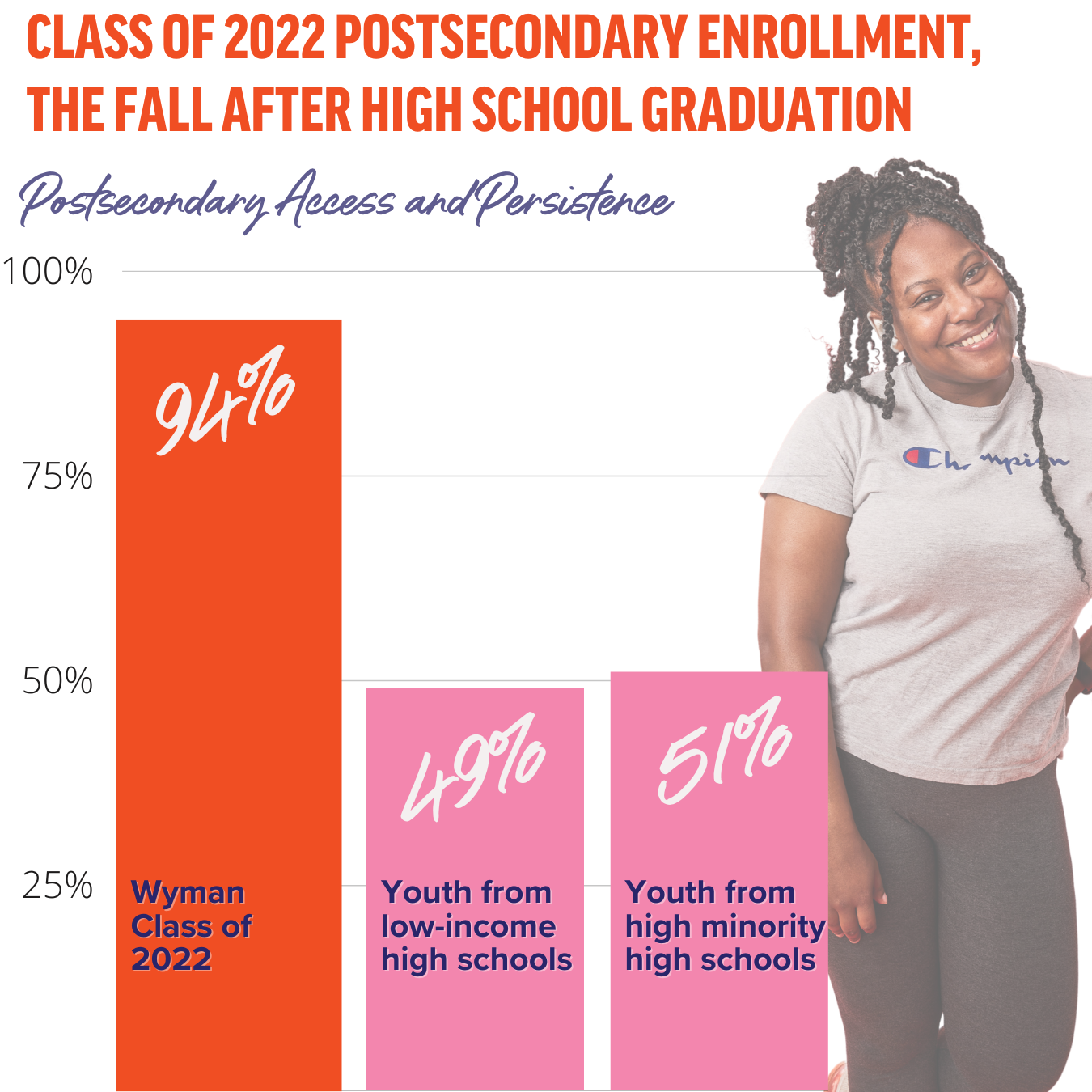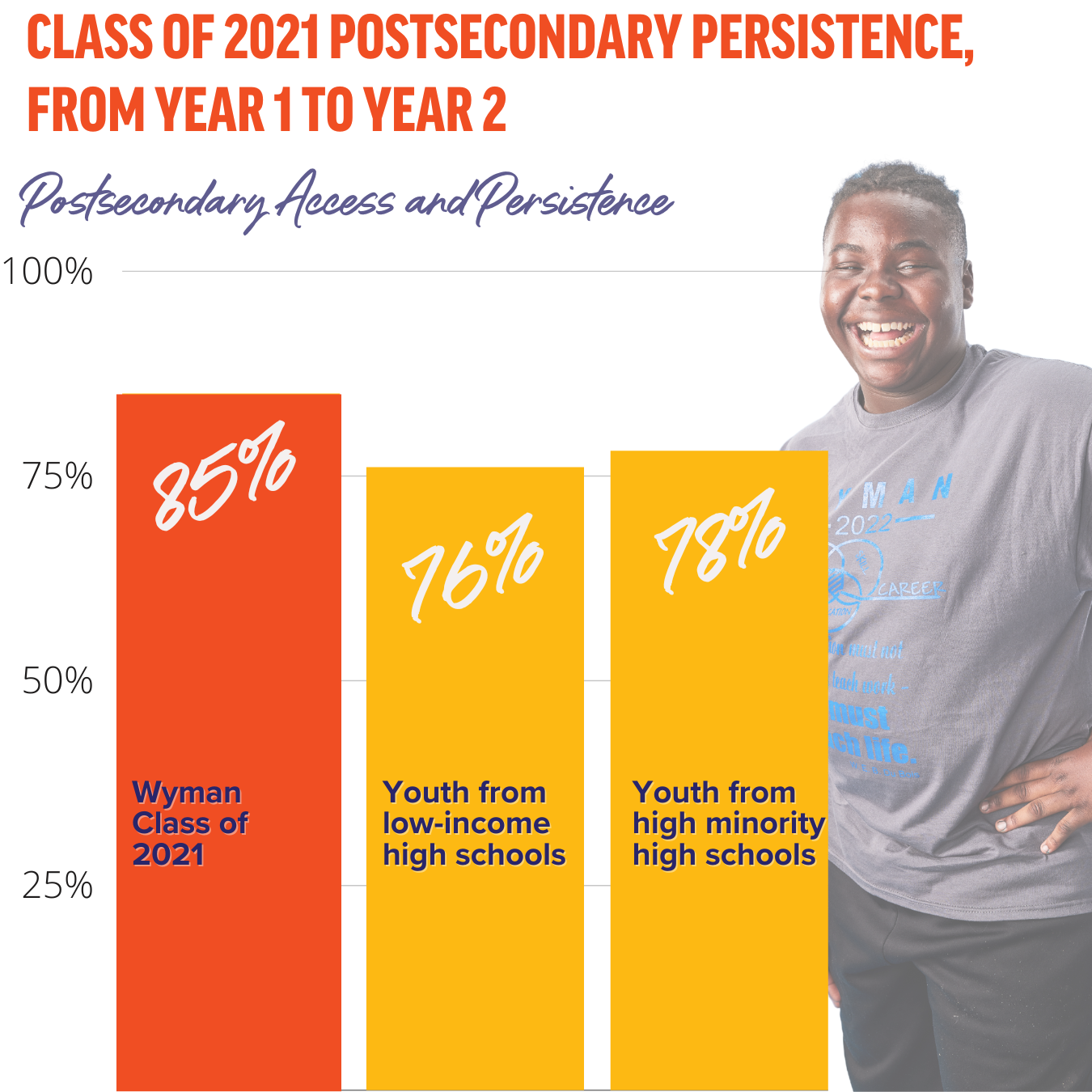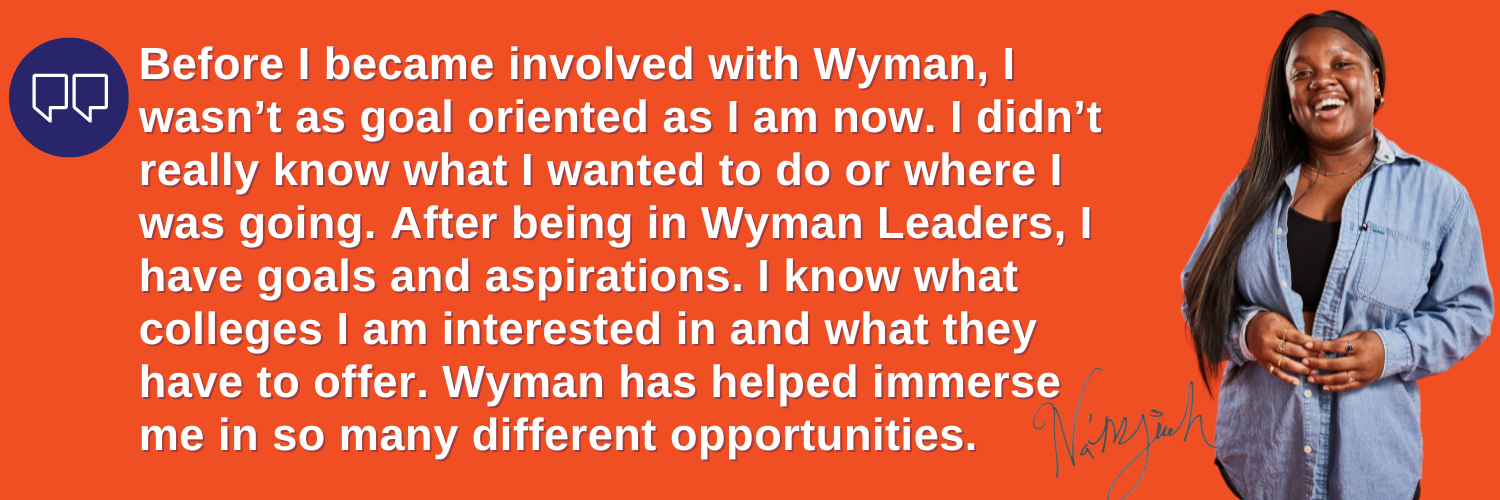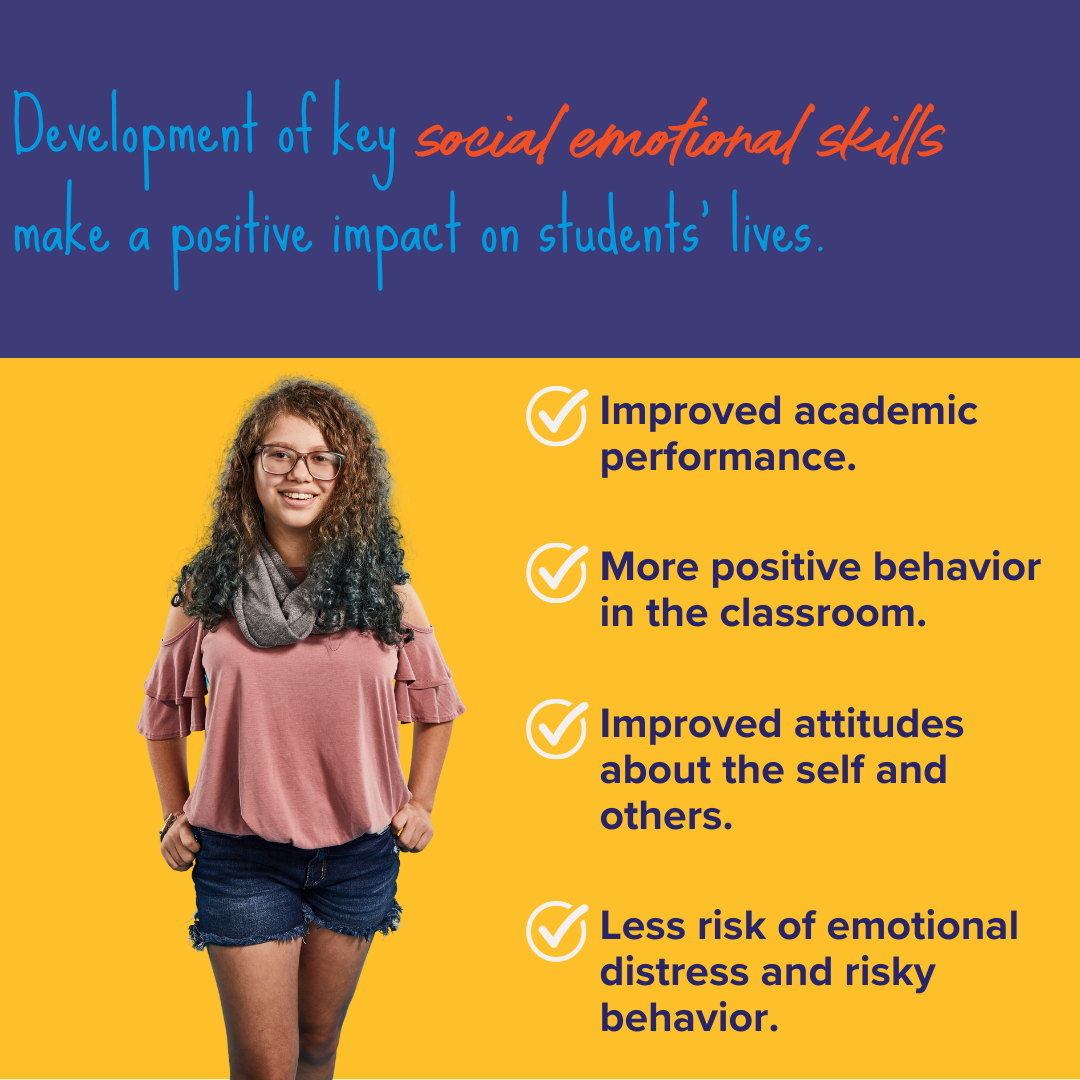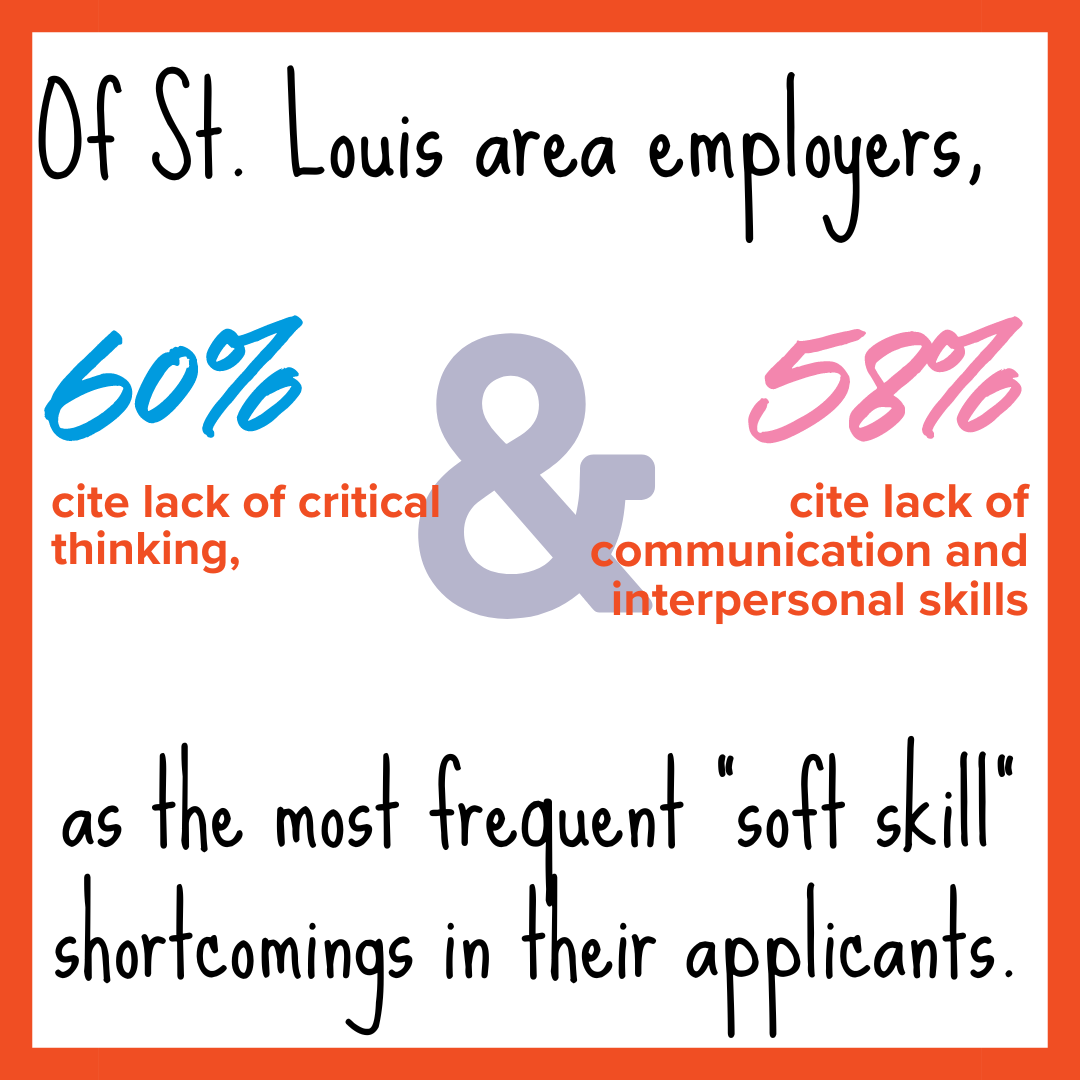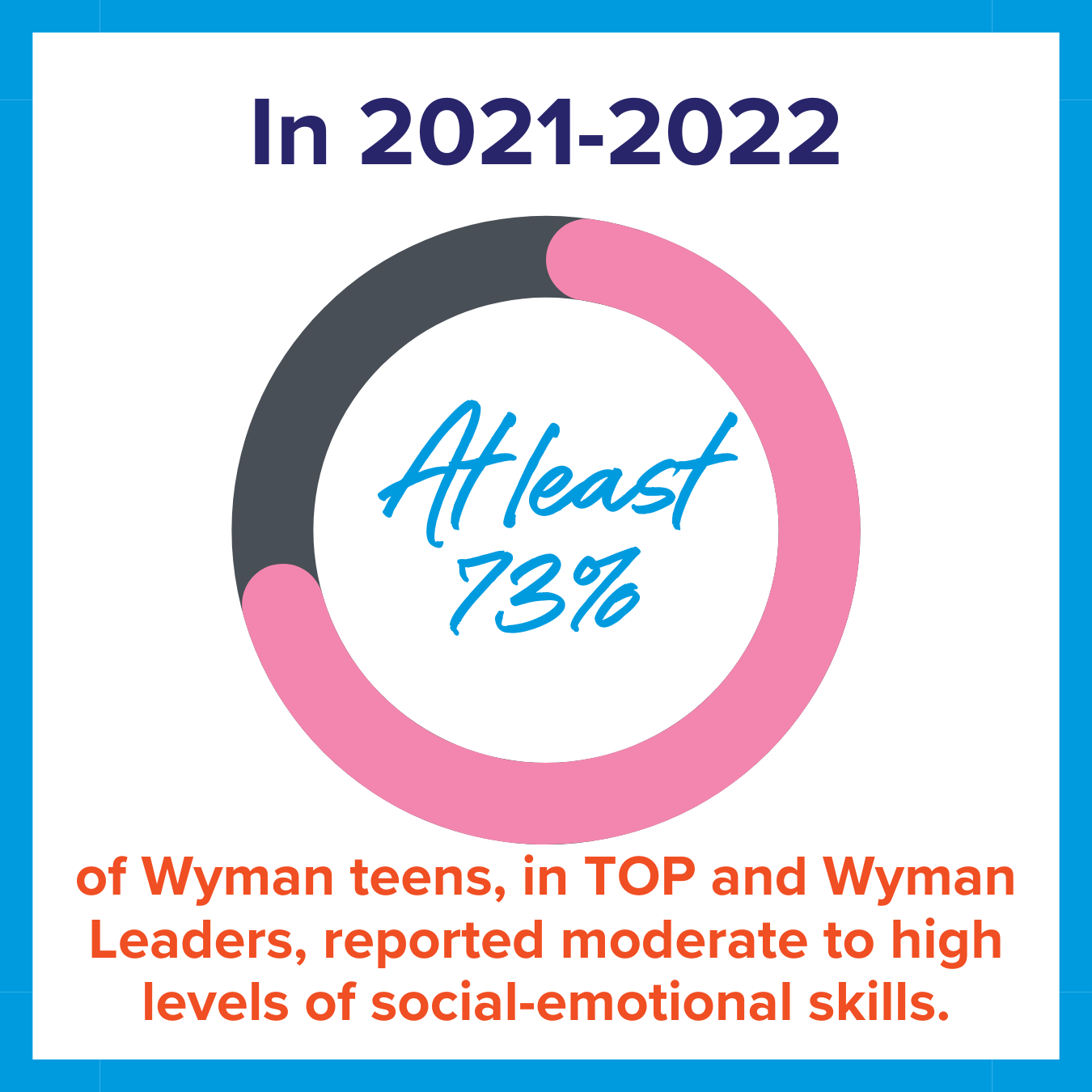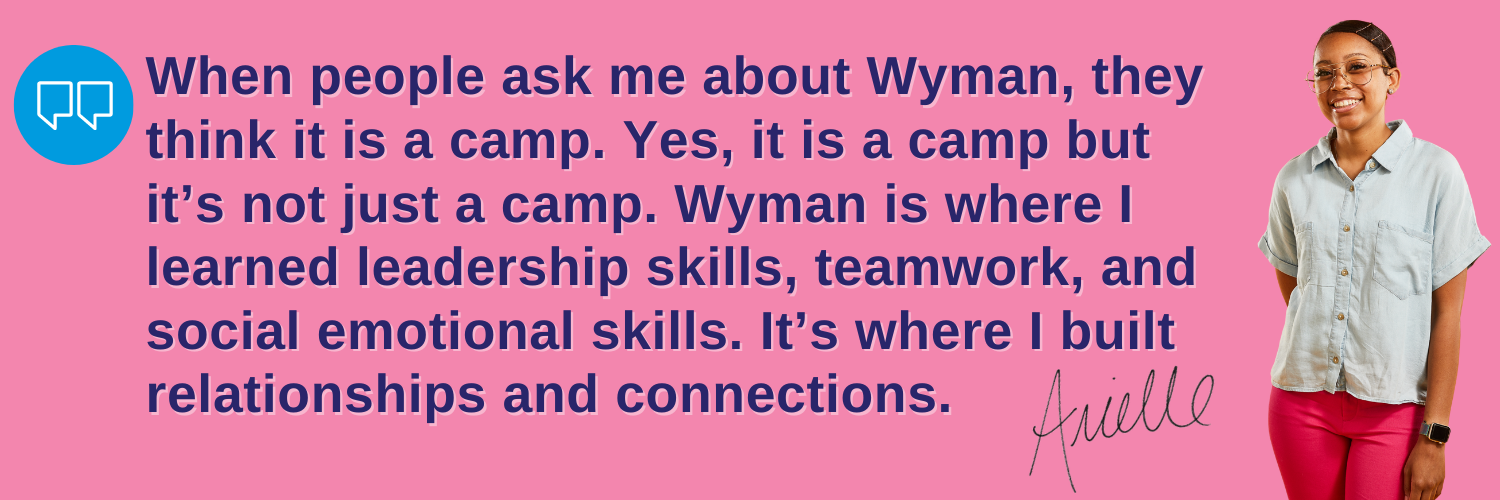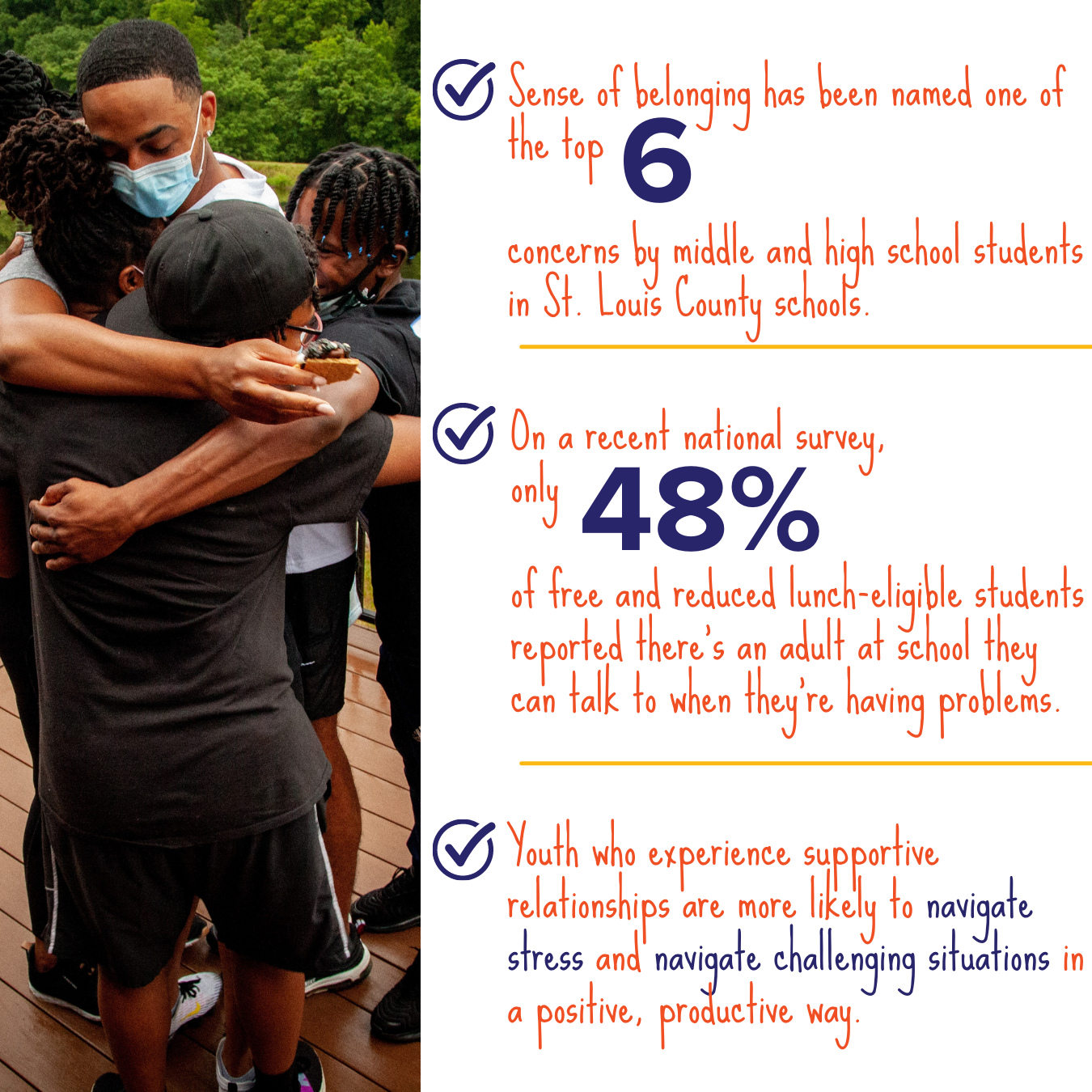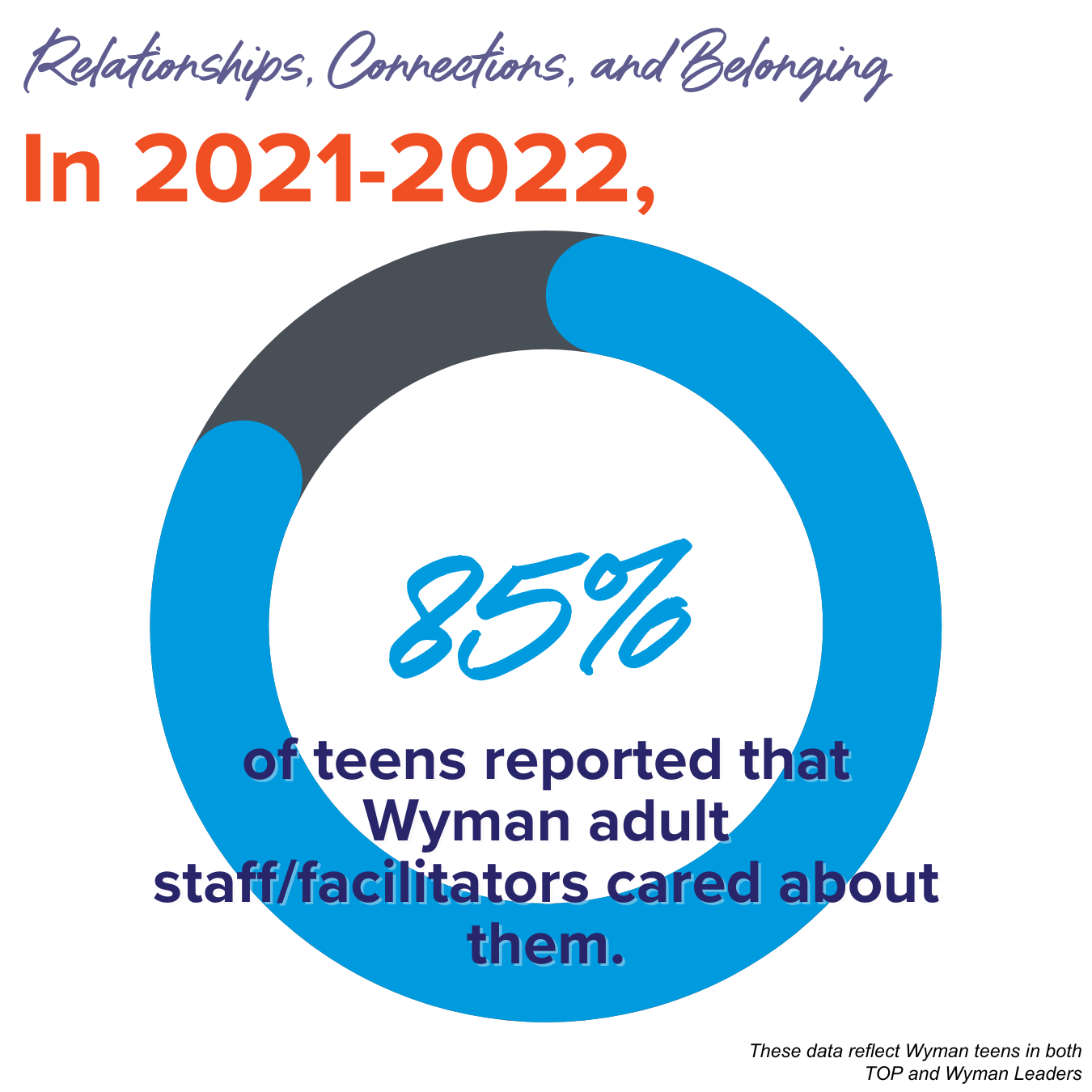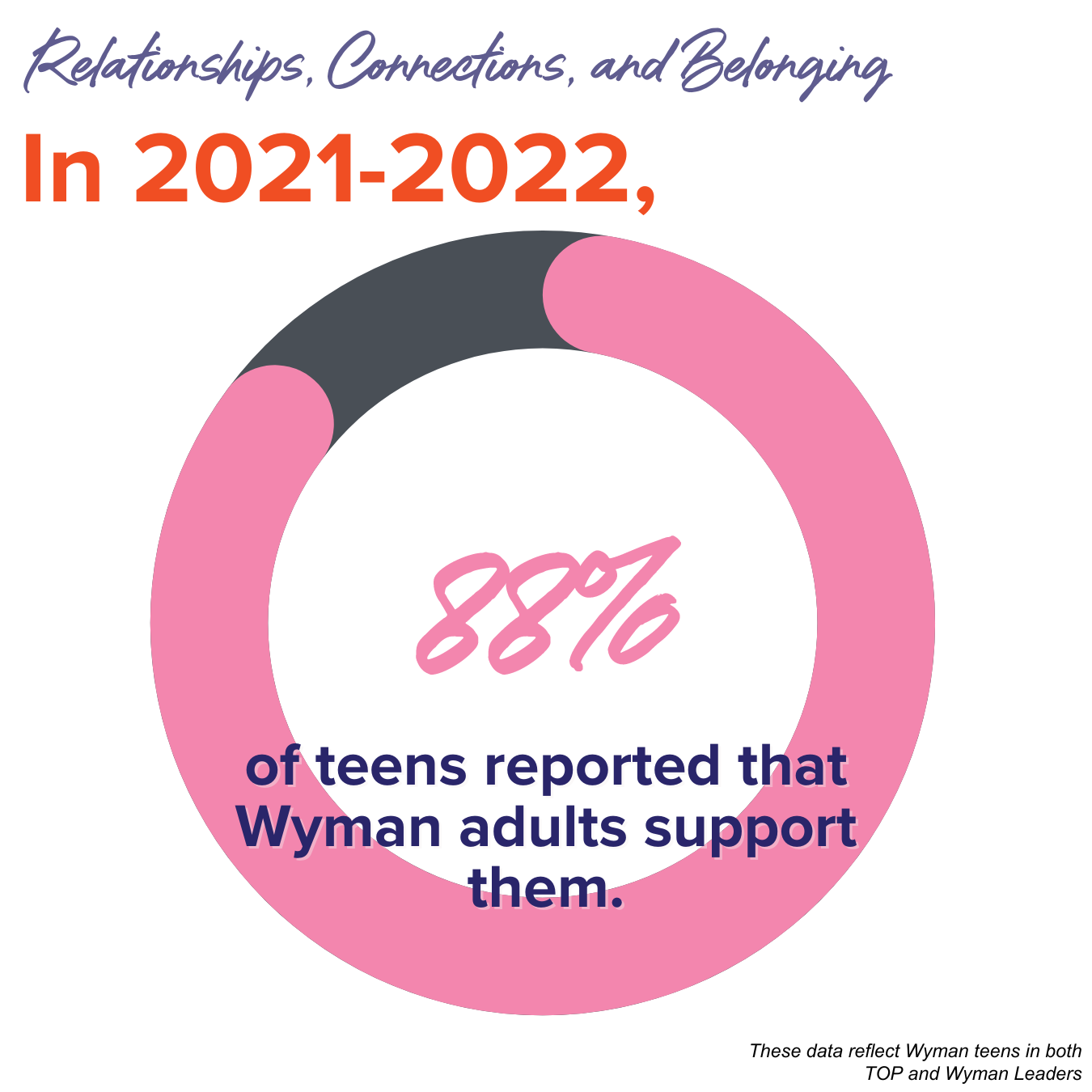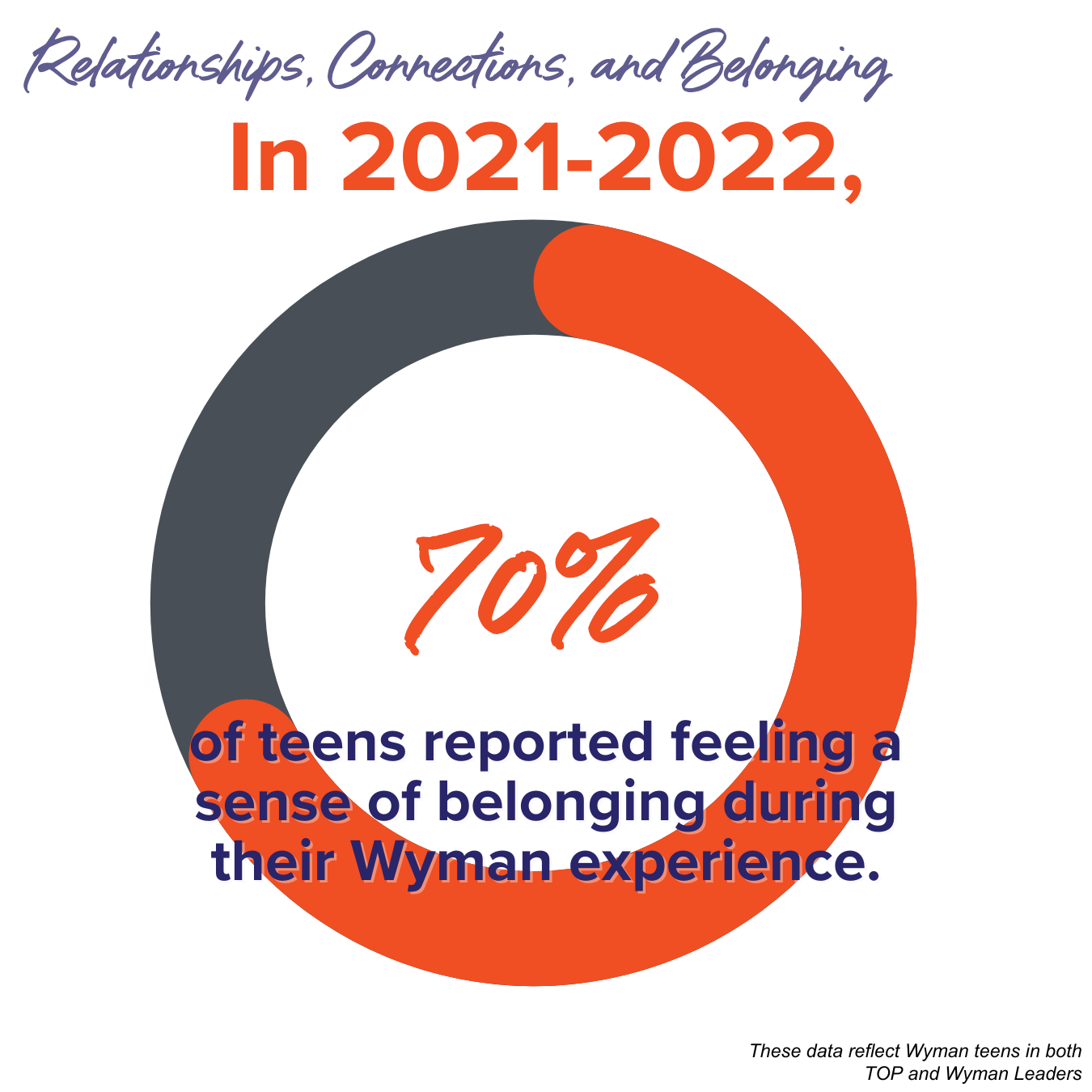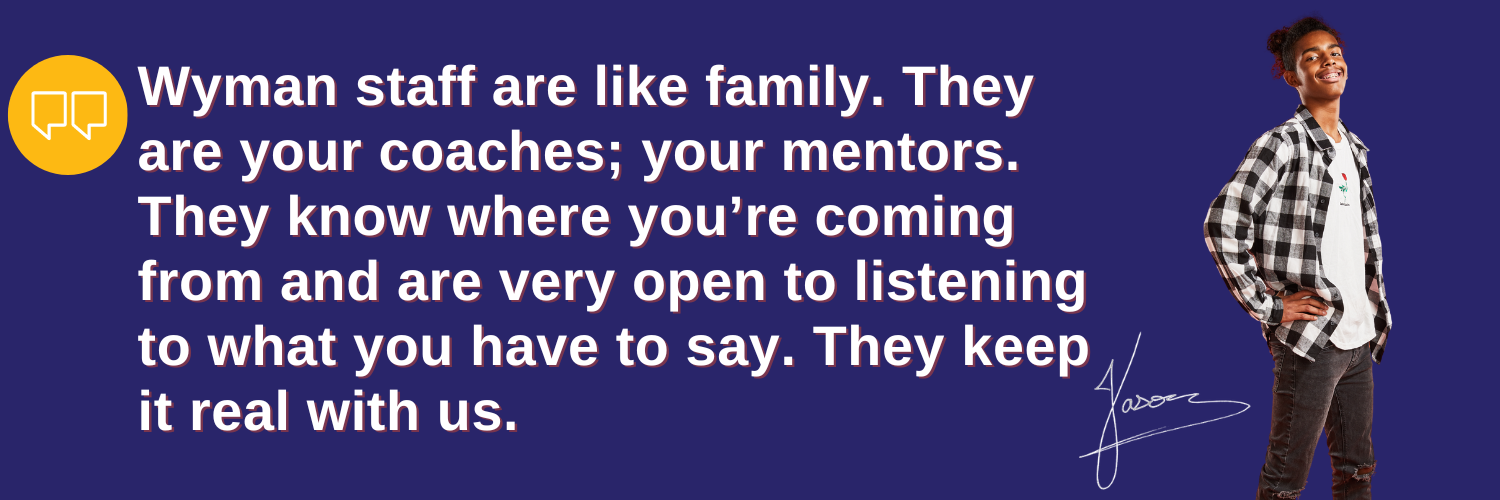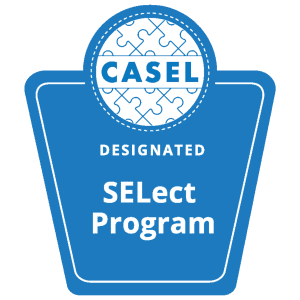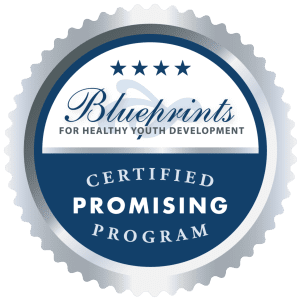Why Wyman?
Through our proven programs, we are part of the lives of more than 3,000 St. Louis area youth and nearly 30,000 nationally every year.
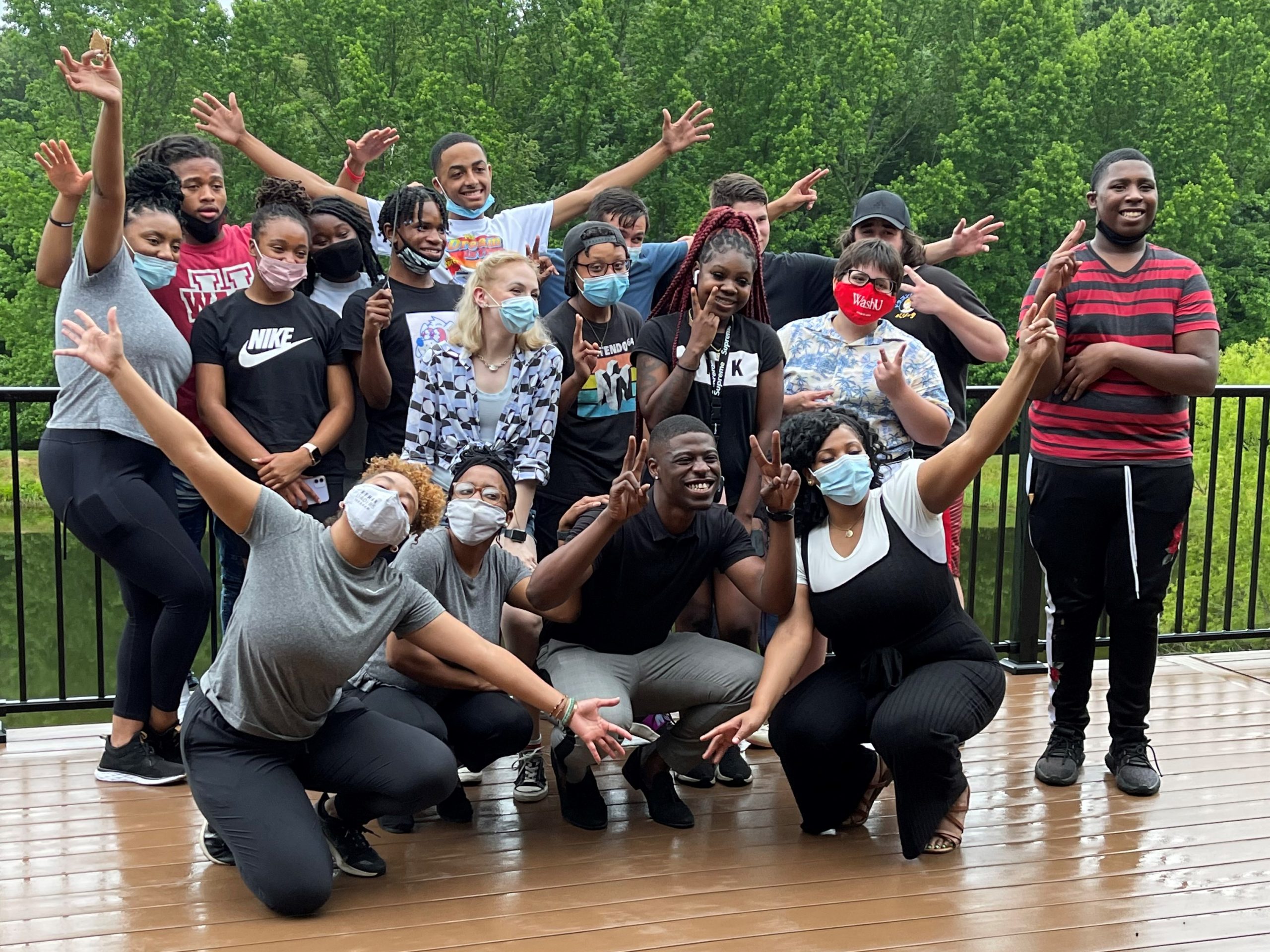
100%
of Wyman Leaders graduate from high school on time.

Wyman Leaders alumni
enroll in and complete postsecondary education at rates that exceed youth with similar socioeconomic backgrounds.
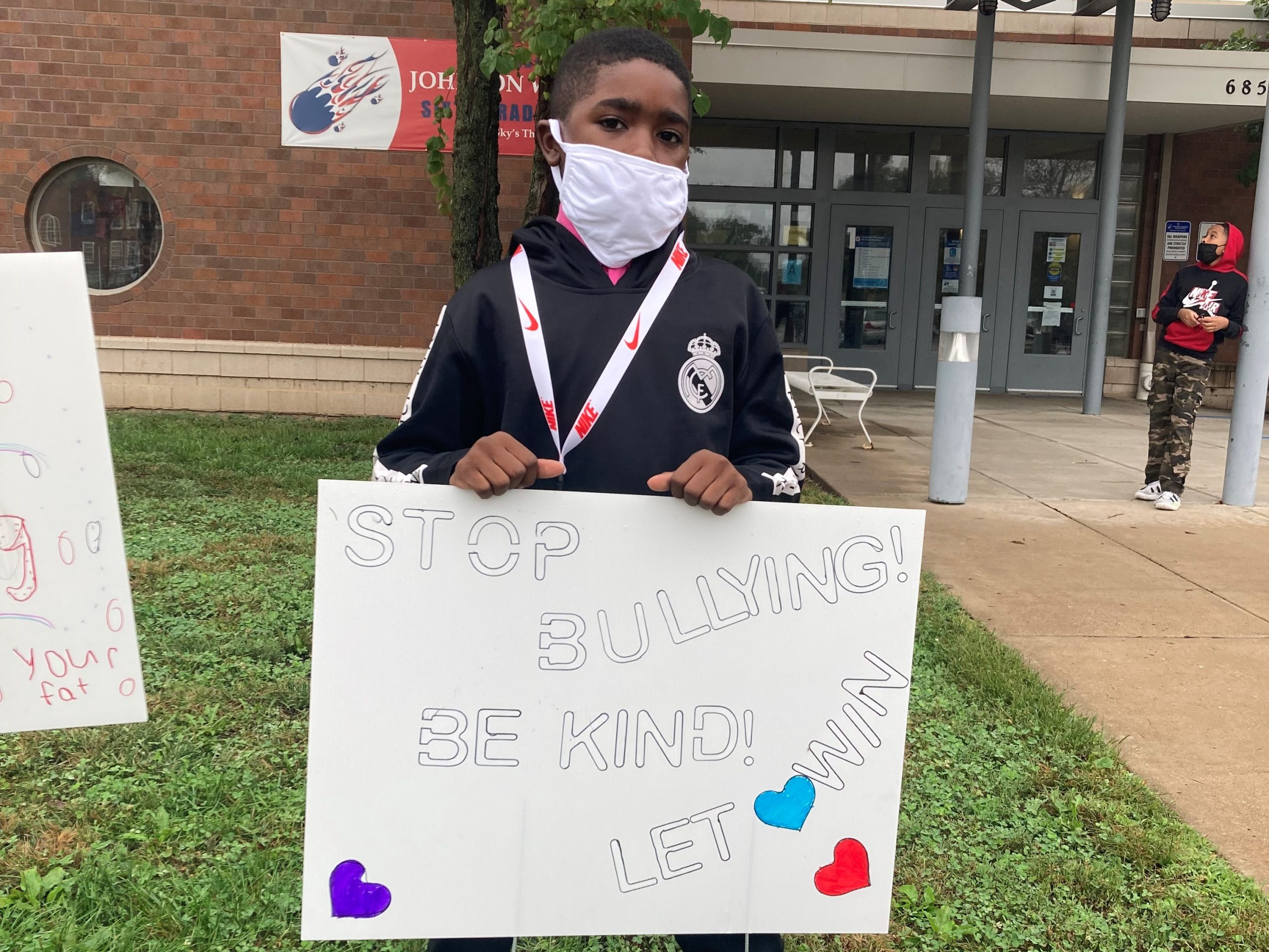
TOP TEENS
consistently show improved social-emotional skills, decreased academic risk behaviors, and a sense of belonging.

2022 Program Outcomes
Our 2022 outcomes show that Wyman’s programs and supports are impactful to youth well-being, skill-building, and educational success.
In 2022, more than 1,600 youth participated in Wyman’s direct service programs. Wyman Leaders continue to graduate from high school on-time and enroll and persist in postsecondary education at rates that exceed their peers in Missouri and nationally. And – both TOP teens and Wyman Leaders show improved social-emotional skills.
It has been 3 years since the onset of the pandemic. Young people across the nation are still dealing with the disruption to their lives, the impacts to their mental health and school engagement, and carry concerns about their futures and their post-secondary education choices. We will continue to see the impacts of the pandemic on all young people for many years.
Through all of this, our young people have persevered. We remain by their side, supporting them as they grow and learn. Each day they show us their courage, inspiration, skills, and determination to succeed.
Wyman teens are graduating from high school and enrolling and persisting in postsecondary education at high rates.
Wyman teens are graduating from high school and enrolling and persisting in postsecondary education at high rates.
Achieving a postsecondary degree or credential can be transformative for young people. Nationally, we know the pandemic has had a significant impact on postsecondary enrollment and persistence. Even prior to the pandemic, college affordability was an increasing concern.
Our Wyman Leaders outcomes for postsecondary enrollment and rates of persistence in school have rebounded to the outstanding pre-pandemic levels. Wyman Leaders youth graduate from high school, enroll in postsecondary and persist at rates that exceed those of youth with similar backgrounds, and rival those of youth from higher socio-economic circumstances.
Wyman teens are developing the social-emotional skills and competencies that are important for success in life.
Wyman teens are developing the social emotional skills and competencies that are important for success in life.
Wyman’s social emotional outcomes have remained strong and steady throughout the pandemic. Social and emotional skills and competencies are vital and go ‘hand-in-hand’ with academic and life success. Research has proven the links between social emotional skill development and academic success.
Wyman teens are building connections with supportive adults and feeling a sense of belonging.
Wyman programs support youth in relationships, connections, and belonging. Now, more than ever, these have been recognized as essential supports to adolescents, their well-being, and their success.
Wyman’s outcomes show that strong relationships and connections among Wyman teens and with supportive adults were sustained throughout the pandemic. In particular, Wyman teens report having positive, supportive relationships with their Wyman facilitators.
Sources:
Children’s Behavioral Health and Substance Abuse Services Needs Assessment for St. Louis County. St. Louis County Children’s Service Fund, March2017.
YouthTruth Student Survey, Learning From Student Voice: Emotional & Mental Health, 2019
Roehlkepartain, E. C., Pekel, K., Syvertsen, A. K., Sethi, J., Sullivan, T. K., & Scales, P. C. (2017). Relationships First: Creating Connections that Help Young People Thrive. Minneapolis, MN: Search Institute.
Durlak, J.A., Weissberg, R.P., Dymnicki, A.B., Taylor, R.D., & Schellinger, K. (2011). The impact of enhancing students’ social and emotional learning: A meta-analysis of school-based universal interventions. Child Development: 82 (1), 405-432.
Taylor, R.D., Oberle, E., Durlak, J.A., & Weissberg, R.P. (2017). Promoting positive youth development through school-based social and emotional learning interventions: A meta-analysis of follow-up effects. Child Development 88(4), 1156-1171.
State of the St. Louis Workforce: The Pathway to Job Growth, St. Louis Community College, 2022
Missouri comparison rates from MIssouri Department of Elementary and Secondary Education (DESE), 2021
Note:
Wyman postsecondary data include youth enrolling in 2-year, 4-year, technical/trade schools, or the military in the fall semester following high school graduation.
Scroll to an Outcome:
Postsecondary Access and Persistence
Relationships, Connections, and Belongings
Dig a little deeper:
Why are social connections and supportive relationships important for teens?
Social-emotional learning: What is it and why is it important?
What is the impact of Wyman Leaders on college achievement and retention?
When adults are fully present for them, youth respond.
Our programs work:
TCP and TOP have both received CASEL’s highest designation for high-quality SEL programming.
TCP and TOP have both been recognized as Promising Programs by Blueprints for Healthy Youth Development.
View the full list of Evidence-Based & Best Practice Listings.


